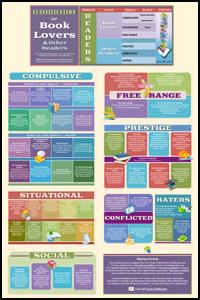First They Came for the Jews. They’re Still Coming.
 Today I’m taking time out from my regularly scheduled memoir programming to talk about another part of my past — the part that happened before I was born but that continues to bleed into the present. Literally.
Today I’m taking time out from my regularly scheduled memoir programming to talk about another part of my past — the part that happened before I was born but that continues to bleed into the present. Literally.
Anyone who knows me a little, online or otherwise, knows that I am a child of Holocaust survivors; my parents both fled from Vienna when the Anschluss came. For several years, I blogged about my mother’s family at Freud’s Butcher. One of the reasons I stopped: I couldn’t bear to mire myself in the pain of that era anymore.
But I’ve been feeling antsy.
A lot of people have rightfully been posting memes comparing what is happening now with the Syrian refugees to what happened with the Jews in World War II. E. Randol Schoenberg — the attorney who successfully retrieved the Klimt painting stolen by the Nazis, as told in Woman in Gold — put it this way on Facebook:
Whenever there is anti-immigrant rhetoric, I am reminded of how our country refused entry to so many Jews during the Holocaust. Our own State Department instructed American consulates to withhold even the limited visas permitted under our strict immigration quotas (which were themselves enacted only in the 1920s in a bigoted attempt to limit the number of Jews and Catholics entering the country — see John F. Kennedy’s “A Nation of Immigrants” (1958).)
But the rhetoric this past week reminded me of something more specific. In our museum, Los Angeles Museum of the Holocaust, we have on display a full-page ad “For Sale to Humanity 70,000 Jews,” sponsored by director/producer Ben Hecht, published in the Los Angeles Times on February 22, 1943 (a full two years before the end of the war). In the ad, Hecht argued (unsuccessfully) for a plan to rescue 70,000 Jews from Romania. In the ad copy, you can read the line “There will be no spies smuggled in among these Jews. (If there are you can shoot them.)” Obviously, many American in 1943 felt the same as many do today — that we cannot risk admitting enemy agents among the throng of refugees. During World War II, this type of fear meant that millions of honest, innocent people were unable to escape their murderers.
I hope we don’t make the same mistake again.

Postcard of the S.S. St. Louis, US Holocaust Memorial Museum
But something that’s not going around so much: The fact that Jews are still being targeted. The majority of Paris terrorist casualties occurred at the Bataclan theater, which had long been in the sites of anti-Israeli groups. According to The Times of Israel, the Jewish owners of the theater — who actually sold it before the attacks, in September — often put on pro-Israel events. Eagles of Death Metal, the U.S. band performing at the theater when the attacks began, played in Tel Aviv’s Barby club in July.
Coincidence?
The Times of Israel reported that another of the attacks in Paris targeted La Belle Equipe cafe, also owned by a Jew, Gregory Reibenberg, whose wife was killed, along with the Muslim manager. Surely just another coincidence.
This morning, I heard the news on NPR about a Jewish teacher being attacked in Marseille by a pro-ISIS group. Since anti-Semitic slogans were being shouted and the teacher was visually orthodox, the religion of the target was hard to ignore. The Guardian also noted: “The stabbing comes several weeks after a knife attack on a rabbi in the southern French city, the country’s second biggest.”
Is a France rocked by Muslim terrorist attacks more sympathetic to the Jews? Hardly. The Holocaust-denying rhetoric that characterized the far right National Front in the days of founder Jean-Marie Le Pen has been toned down by his daughter, Marine, but xenophobia is xenophobia, and Jews are often considered outsiders in their home countries. Once the party capitalizes on the anti-Muslim, anti-refugee rhetoric to gain seats in the next election — worst case but likely scenario — anti-Semitism will surely make a comeback, even if in a more subtle form.
It’s been my experience that, when it comes to Jews, the enemy of my enemy isn’t my friend for long.
But that’s overseas, you say. It’s different in the U.S. I wish. The all-Christian, all-the-time rhetoric of the right wing makes me extremely nervous. The American right loves Israel, but the Jews? Not so much. Evangelicals believe that, at the End of Times, the Jews will get raptured up to…I’m not sure where. I don’t think it’s heaven, what with us not believing in the divinity of Jesus and all.
The American left often conflates Judaism with Zionism, and with divided loyalties; NPR’s Diane Rehm mistakenly asserted, based on a Facebook comment, that Bernie Sanders had dual citizenship with Israel. Jews are tarred with Netanyahu’s policies, no matter our personal beliefs. Whereas it’s unacceptable to blame all Muslims for terrorist attacks — or all Americans for drone-caused civilian casualties in the Middle East and Afghanistan — Israelis as a group are often held responsible for West Bank settlements.
Don’t even get me started on the BDS movement on American campuses.
So I feel squeezed from both ends of the political spectrum. Oversensitive? My family history says that even paranoids have enemies, that you can never worry enough.
It’s precisely that background that has made me oppose discrimination of any kind, including against Syrian immigrants. I refuse to perpetuate hatred — or to deny it when I see it on the horizon. Anti-Semitism is no remnant of the distant past to be hauled out to serve as a cautionary tale, memes suggesting otherwise notwithstanding.









